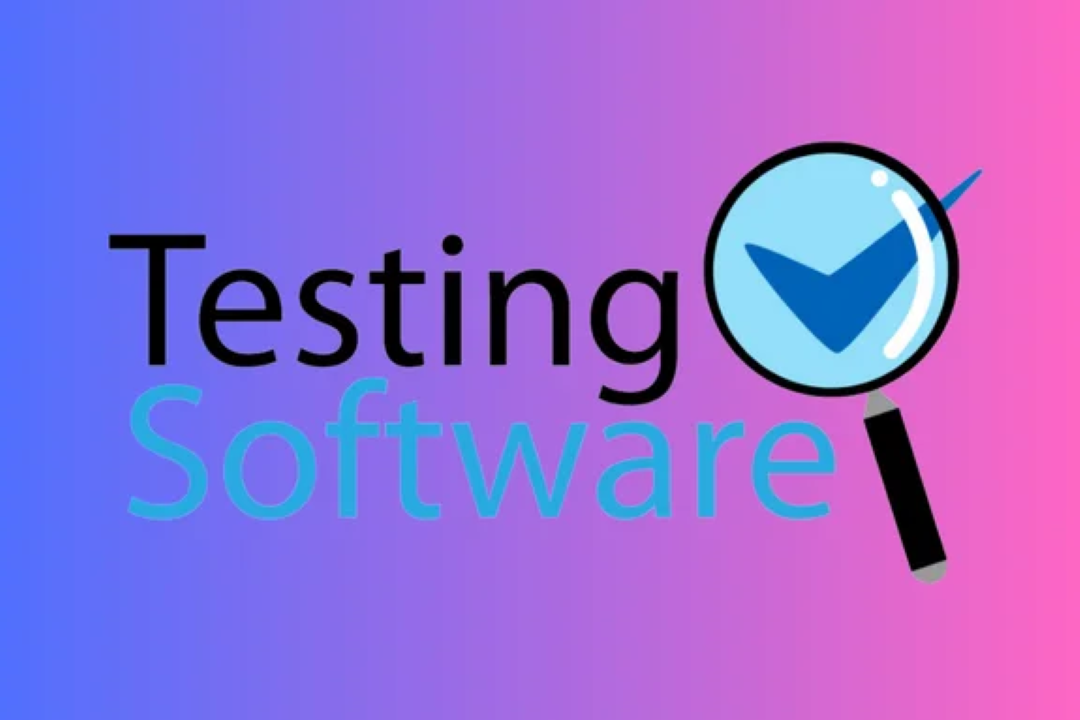Selenium Course In Delhi
The Selenium Automation Testing Course in Delhi at JustAcademy is a comprehensive training program d
Selenium Course In Delhi
The Selenium Automation Testing Course in Delhi at JustAcademy is an invaluable opportunity for aspiring software testers and quality assurance professionals. As web applications become increasingly complex, the demand for efficient testing solutions rises, making Selenium a crucial tool in the industry. This course provides participants with hands-on experience and in-depth knowledge of Selenium WebDriver, enabling them to automate testing processes effectively. With a focus on real-time projects, learners acquire practical skills that enhance their employability and prepare them for the challenges of modern software development. By mastering Selenium, individuals can significantly improve their testing efficiency and contribute to higher quality software delivery.
To Download Our Brochure: https://www.justacademy.co/download-brochure-for-free
Message us for more information: +91 9987184296
The Selenium Automation Testing Course in Delhi at JustAcademy is an invaluable opportunity for aspiring software testers and quality assurance professionals. As web applications become increasingly complex, the demand for efficient testing solutions rises, making Selenium a crucial tool in the industry. This course provides participants with hands on experience and in depth knowledge of Selenium WebDriver, enabling them to automate testing processes effectively. With a focus on real time projects, learners acquire practical skills that enhance their employability and prepare them for the challenges of modern software development. By mastering Selenium, individuals can significantly improve their testing efficiency and contribute to higher quality software delivery.
Course Overview
The Selenium Course in Delhi offered by JustAcademy provides a comprehensive introduction to automation testing using Selenium WebDriver. Designed for both beginners and experienced professionals, this course covers essential concepts such as test automation frameworks, the Selenium architecture, and advanced features like handling AJAX-based applications and synchronizations. Students will engage in real-time projects, ensuring they gain practical experience in creating, executing, and maintaining automated test scripts. By the end of the course, participants will possess the skills needed to enhance their testing efficiency, improve software quality, and prepare for lucrative career opportunities in the booming field of software testing and quality assurance.
Course Description
The Selenium Course in Delhi offered by JustAcademy is meticulously designed to equip participants with the fundamental and advanced skills required for automation testing using Selenium WebDriver. This course encompasses essential topics such as test case design, understanding the Selenium architecture, and the development of robust test automation frameworks. Students will delve into practical, real-time projects that simulate real-world testing scenarios, enabling them to gain hands-on experience. By focusing on key features like handling dynamic web elements and implementing optimal test strategies, the course prepares participants to excel in their careers in software quality assurance and testing. Upon completion, learners will be proficient in automation testing, making them valuable assets in the fast-growing tech industry.
Key Features
1 - Comprehensive Tool Coverage: Provides hands-on training with a range of industry-standard testing tools, including Selenium, JIRA, LoadRunner, and TestRail.
2) Practical Exercises: Features real-world exercises and case studies to apply tools in various testing scenarios.
3) Interactive Learning: Includes interactive sessions with industry experts for personalized feedback and guidance.
4) Detailed Tutorials: Offers extensive tutorials and documentation on tool functionalities and best practices.
5) Advanced Techniques: Covers both fundamental and advanced techniques for using testing tools effectively.
6) Data Visualization: Integrates tools for visualizing test metrics and results, enhancing data interpretation and decision-making.
7) Tool Integration: Teaches how to integrate testing tools into the software development lifecycle for streamlined workflows.
8) Project-Based Learning: Focuses on project-based learning to build practical skills and create a portfolio of completed tasks.
9) Career Support: Provides resources and support for applying learned skills to real-world job scenarios, including resume building and interview preparation.
10) Up-to-Date Content: Ensures that course materials reflect the latest industry standards and tool updates.
Benefits of taking our course
Functional Tools
1 - Selenium WebDriver: Selenium WebDriver is the core tool used in the course for automating web applications. It provides a programming interface to create and execute test scripts in various programming languages such as Java, Python, and C#. Selenium WebDriver interacts with browsers just like a real user, simulating actions like clicking buttons, entering text, and navigating through pages. The course offers comprehensive training on how to effectively use these commands for creating robust test cases.
2) TestNG: TestNG is a testing framework inspired by JUnit and NUnit that is used for running tests in the Selenium course. It enables easy organization and management of test cases, provides features for parallel execution, and supports data driven testing. Students learn how to create test suites, generate reports, and handle test dependencies, all of which are crucial in enhancing the efficiency and effectiveness of test automation.
3) Apache Maven: Apache Maven is a build automation tool that helps manage project dependencies, build lifecycle, and project structure. In the Selenium course, students learn how to set up Maven for their Selenium projects, manage library dependencies, and run tests seamlessly. This tool helps streamline the development process and ensures that projects are built consistently across different environments.
4) Git and GitHub: Version control is essential in software development, and to this end, the course introduces Git and GitHub. Students understand how to use Git for source code management, track changes in their test scripts, and collaborate with others through GitHub repositories. Practical exercises within the course help reinforce these concepts, allowing students to manage their automation projects effectively.
5) BrowserStack: BrowserStack is a cloud based testing platform that allows users to test their applications across a multitude of browsers and devices without needing a physical setup. Throughout the course, participants learn how to integrate Selenium with BrowserStack to run their test scripts on different browser environments. This tool is invaluable for ensuring cross browser compatibility and reducing the complexities associated with device configuration.
6) Cucumber: Cucumber is a tool used for behavior driven development (BDD), which facilitates collaboration between testers and non technical stakeholders through readable test cases. In the course, students are introduced to Cucumber for writing test scenarios in plain language using Gherkin syntax. This helps bridge the communication gap between technical and non technical team members, promoting better understanding and engagement in the automation testing process.
These tools collectively enhance the learning experience in the Selenium course in Delhi, providing students with hands on experience and skills that are directly applicable to real world software testing scenarios.
Here are additional points and tools that will enrich the Selenium course and provide students with a comprehensive understanding of automation testing:
7) JUnit: JUnit is a widely used testing framework for Java applications that provides annotations, assertions, and test runners for creating repeatable tests. In our Selenium course, participants learn how to write and execute unit tests, enabling them to verify the functionality of individual components and integration points in their applications.
8) Page Object Model (POM): The Page Object Model is a design pattern that enhances test maintenance and reduces code duplication when automating web applications. During the course, students discover how to implement POM effectively, allowing them to create separate classes for each page of the application, which improves the organization and readability of test scripts.
9) RestAssured: For students focusing on API testing, RestAssured is a powerful Java library that simplifies the process of testing REST APIs. The course includes insights into integrating Selenium with RestAssured, enabling testers to verify the functionality of web applications holistically, combining frontend validation with backend API testing.
10) Continuous Integration Tools (Jenkins): Jenkins is a leading continuous integration (CI) tool that helps automate the testing and deployment process. The course covers how to integrate Selenium tests into Jenkins, allowing students to set up automated test pipelines that execute tests with every code change. This fosters better development practices and ensures consistent quality.
11 - Allure Reports: Allure is a flexible open source reporting framework that provides comprehensive test execution reports. In the course, students learn how to generate attractive and detailed reports for their Selenium tests, making it easier to analyze test results and communicate findings to stakeholders.
12) Docker: Docker is an essential tool for containerization, allowing students to create lightweight containers for their testing environments. The course showcases how to use Docker to run Selenium tests in isolated environments, ensuring that dependencies do not conflict and tests can be executed consistently across different setups.
13) Test Data Management: Effective test automation requires structured test data. The course emphasizes best practices for managing test data, including using databases or data files and integrating data driven testing techniques. Students learn vital skills for handling different scenarios and edge cases more effectively.
14) Mobile Testing with Appium: For those interested in extending their testing skills to mobile applications, the course covers Appium, an open source tool that allows automation of mobile apps. Students will explore how to set up Appium with Selenium, enabling them to write tests for both web and mobile platforms seamlessly.
15) Error Handling and Debugging: Automated tests can fail for various reasons. The course includes strategies for error handling and debugging tests effectively. Students learn how to use tools such as logs and screenshots for diagnosing issues and improving the reliability of their test automation suite.
16) Real time Projects and Case Studies: To solidify learning, the course incorporates real time projects and case studies that simulate real world scenarios. Participants will work on practical assignments that require applying their knowledge to build automation frameworks, run tests, and analyze outcomes, preparing them for the challenges they will face in the field.
These additional points and tools will provide participants of the Selenium course at JustAcademy with a robust skill set, preparing them for successful careers in software automation testing. By integrating a variety of relevant technologies and practical experiences, JustAcademy ensures that students are well equipped to tackle the demands of today's software development landscape.
Browse our course links : https://www.justacademy.co/all-courses
To Join our FREE DEMO Session:
This information is sourced from JustAcademy
Contact Info:
Roshan Chaturvedi
Message us on Whatsapp: +91 9987184296
Email id: info@justacademy.co












